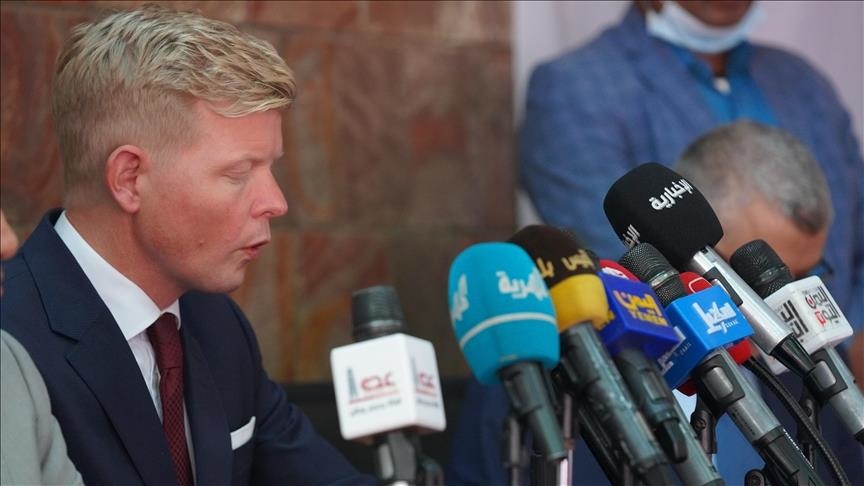UN envoy warns of 'free fall' as Yemen faces risk of wider conflict
'The cost of inaction is high, and Yemen cannot afford more years of division, economic collapse and human suffering,' says Hans Grundberg

HAMILTON, Canada
UN Special Envoy for Yemen Hans Grundberg on Thursday warned that delays in progress risk plunging Yemen back into a wider conflict, citing fragile frontlines and an economy in "free fall."
"I emphasize again, however, that time is not on our side. Conditions can change rapidly and unpredictably. The multiple front lines across Yemen remain fragile and risk descending into more active fighting," Grundberg told the UN Security Council.
Highlighting the country's dire economic state, he said: "Yemen's economy is in dire need of positive and trust-building steps such as these. Yemeni citizens continue to shoulder the impacts of an economy in free fall."
Calling for the easing of restrictions and improving access across the country, Grundberg stressed that "more can and should be done to alleviate the humanitarian and economic hardships faced by the Yemeni people, including allowing the Government of Yemen to export oil and gas and facilitating the unobstructed flow of goods across the country."
"For Yemen to extricate itself from its current economic hardship, the parties need to move away from a zero-sum mindset towards pragmatism and compromise," he added.
Urging international actors to safeguard the region's key waterways, he noted the "need to build on the recent cessation of hostilities in the Red Sea and provide durable guarantees to the region and the wider international community and ensure the safety of all those using this critical waterway."
"This effort goes hand in hand with our ongoing work towards a roadmap that will help Yemen overcome its current divisions and lead to a comprehensive ceasefire, critical economic measures, and an inclusive political process," said Grundberg.
"The cost of inaction is high, and Yemen cannot afford more years of division, economic collapse, and human suffering," he stressed.
Grundberg also called for the "immediate and unconditional release" of those UN personnel detained by the Houthi group in Yemen.
UN Assistant Secretary-General for Humanitarian Affairs Joyce Msuya also echoed concerns over the dire humanitarian needs in the country, saying: "Over 17 million people, or nearly half of Yemen’s population, are estimated to be acutely hungry," while malnutrition affects "1.3 million pregnant and breastfeeding women and 2.3 million children under the age of five."
Msuya welcomed the reopening of a key road between Aden and Sanaa via Al-Dhalea on May 29, which had been closed for nearly seven years.
"This development, supported by the authorities and reflective of community sentiment and initiatives, shows that Yemen is not on a fixed downhill trajectory. With trust and the right tools, there remains hope," she said.
She also thanked the EU for pledging 80 million euros in humanitarian funding to support critical programming in Yemen.
"Humanitarians are clearly doing their best, but our response is constrained by the lack of funding and falls short of what the people of Yemen need," she said.
Msuya urged for scaled-up assistance and said: There needs to be a commitment to scaling up long-term development assistance to prevent communities from sliding into more acute levels of humanitarian needs, while also ensuring access to essential services and generating economic and livelihood opportunities."
Anadolu Agency website contains only a portion of the news stories offered to subscribers in the AA News Broadcasting System (HAS), and in summarized form. Please contact us for subscription options.







